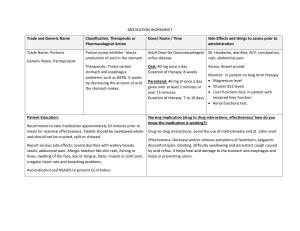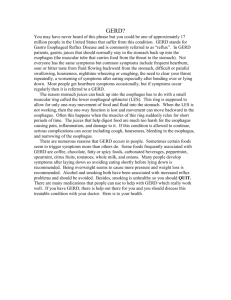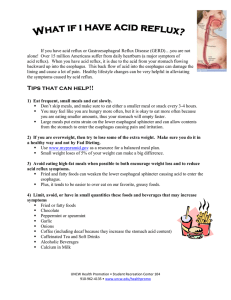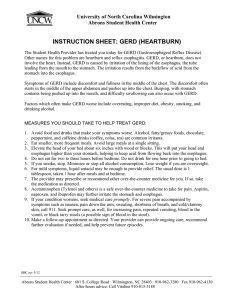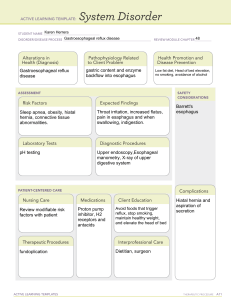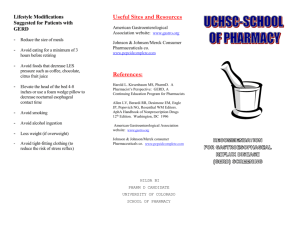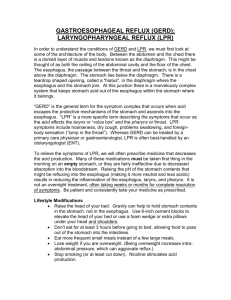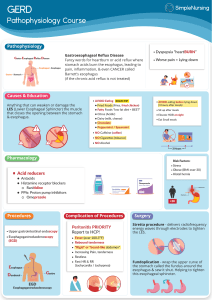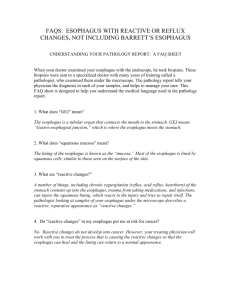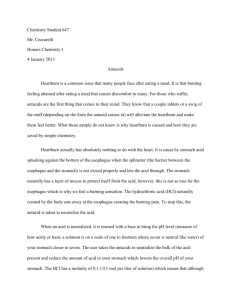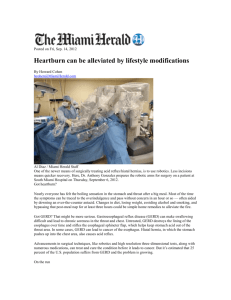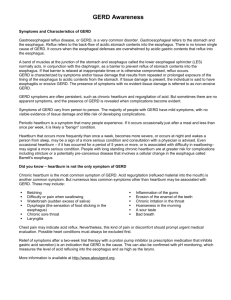File
advertisement
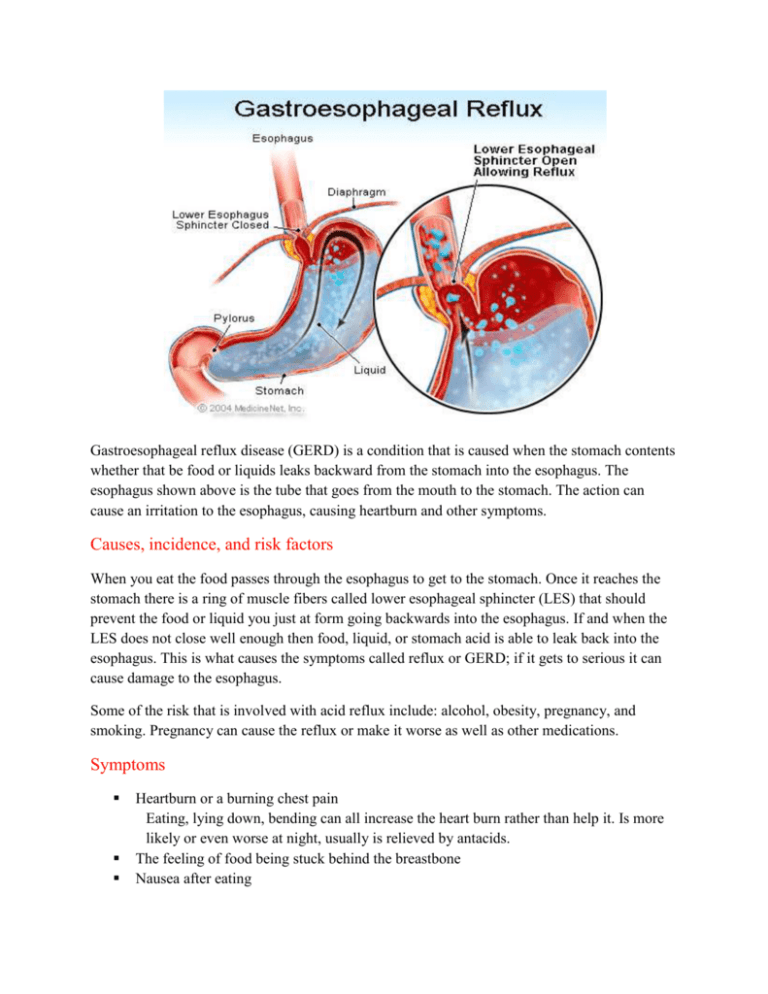
Gastroesophageal reflux disease (GERD) is a condition that is caused when the stomach contents whether that be food or liquids leaks backward from the stomach into the esophagus. The esophagus shown above is the tube that goes from the mouth to the stomach. The action can cause an irritation to the esophagus, causing heartburn and other symptoms. Causes, incidence, and risk factors When you eat the food passes through the esophagus to get to the stomach. Once it reaches the stomach there is a ring of muscle fibers called lower esophageal sphincter (LES) that should prevent the food or liquid you just at form going backwards into the esophagus. If and when the LES does not close well enough then food, liquid, or stomach acid is able to leak back into the esophagus. This is what causes the symptoms called reflux or GERD; if it gets to serious it can cause damage to the esophagus. Some of the risk that is involved with acid reflux include: alcohol, obesity, pregnancy, and smoking. Pregnancy can cause the reflux or make it worse as well as other medications. Symptoms Heartburn or a burning chest pain Eating, lying down, bending can all increase the heart burn rather than help it. Is more likely or even worse at night, usually is relieved by antacids. The feeling of food being stuck behind the breastbone Nausea after eating Some less common symptoms are: Cough or wheezing Difficulty swallowing Hiccups Sore throat Change in voice. Treatment By making a few lifestyle changes you can help treat your symptoms. You can avoid eating food that causes the problem or changing the routine you do before you go to bed might help. Avoid drugs like naproxen, ibuprofen, or aspirin but you can take Tylenol to help relieve the pain which is an acetaminophen. There are over-the-counter drugs that will help treat the symptoms and also prescription drugs, although they will take long to work then last long then just taking an antiacid.
